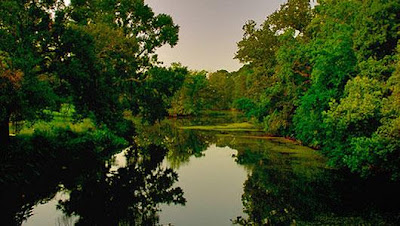The ongoing COP17 climate meeting
in Durban, South Africa is themed "saving tomorrow today." Yet a global
dam boom being promoted by dam proponents -- including dozens of
megadams proposed for Africa's major rivers -- could make a mockery of
this vision, by endangering rivers and the ecosystems we all depend on.
While we clearly need to reduce our greenhouse gas emissions, a
climate-smart energy path doesn't sacrifice one important natural
resource to save another. We need healthy rivers just as urgently as we
do a healthy atmosphere.
A new 3-D Google Earth video illustrates three key reasons that large dams are the wrong response to climate change:
- River flows are increasingly unpredictable. Large dams have always been based on the assumption that future stream-flow patterns will mirror those of the past, but this is no longer true. Climate change has begun to significantly and unpredictably change precipitation patterns. More frequent droughts will make many hydropower projects uneconomic. More extreme rainfall will increase the risk of dam failures and catastrophic flood releases.
- Healthy rivers are critical for supporting life on Earth. Big dams make it harder for people and ecosystems downstream of dams to adapt to climate change by reducing water quality and quantity, drying up forests and wetlands, flooding productive land, and destroying fisheries.
- Dam reservoirs emit greenhouse gases. In the tropics, dam reservoirs are a globally significant source of one of the most potent gases, methane. Meanwhile, free-flowing rivers play a crucial role in helping trap carbon.
The Google Earth tour visualizes what we call "hydrodependency" in Africa, where new dams are being built without any analysis of how climate change could affect their economic viability or their safety. Africa cannot afford dried-up reservoirs or dam collapses on top of the already high costs of adapting to a changing climate.
Read more @ Huffingtonpost.com

No comments:
Post a Comment